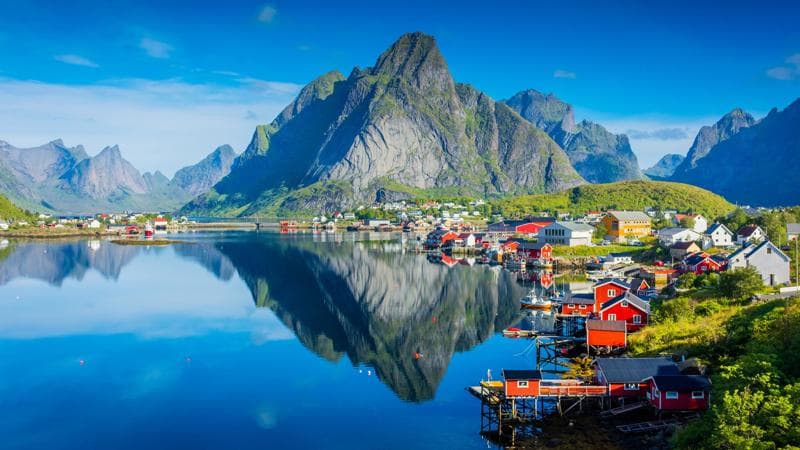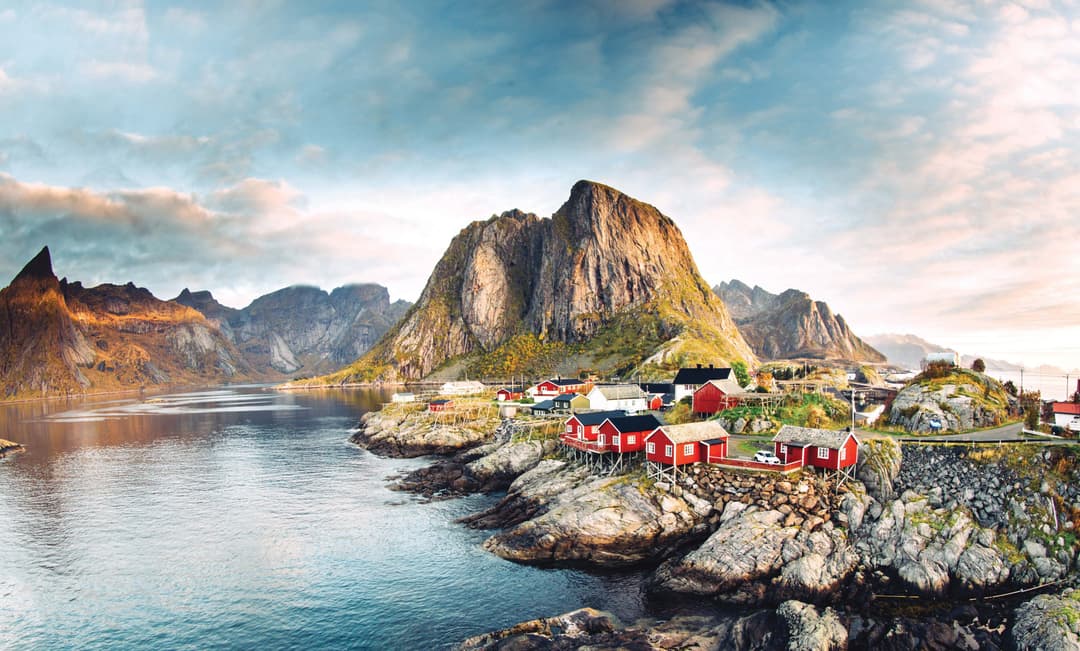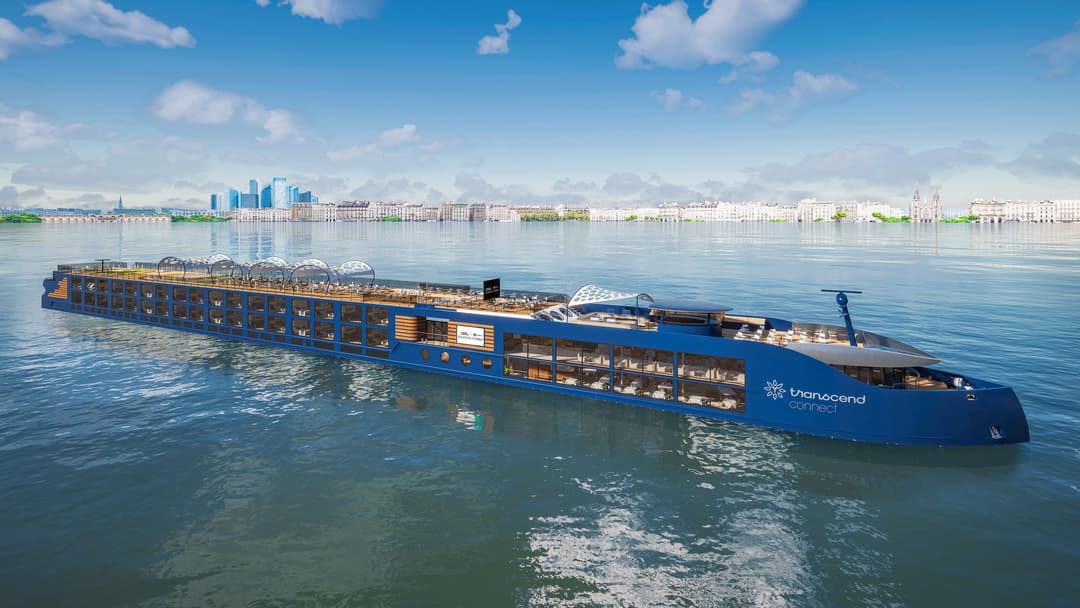In Good Company: Exploring Western Ireland with Former President Mary Robinson
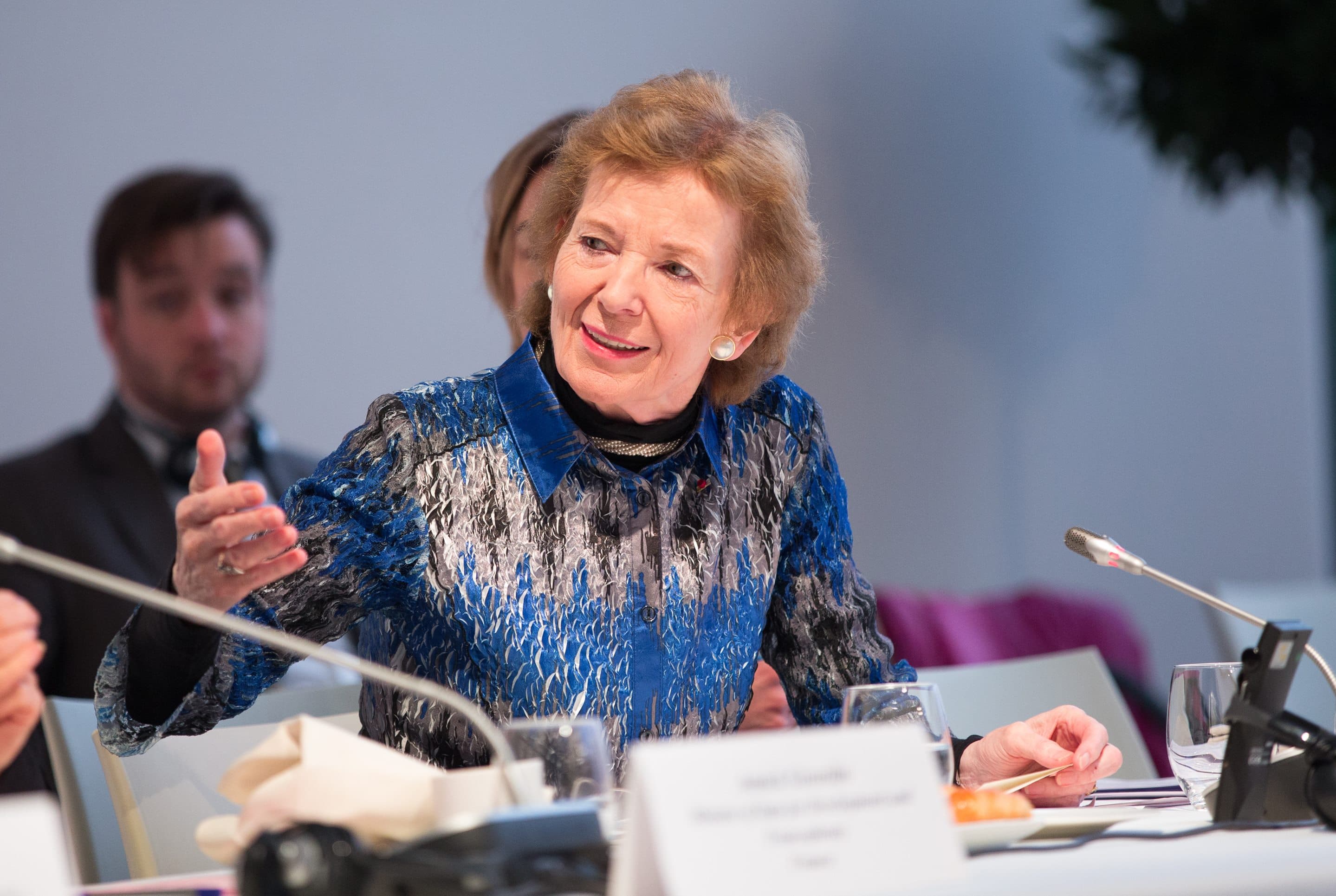
“Irish people love to talk about Ireland—we’re very proud,” promises Mary Robinson, the former President of the island nation. This is a stroke of luck for the guests aboard next spring’s voyage, Ancient Isles: England, Ireland, and Scotland, where she will be a guest lecturer. Robinson has a wealth of stories and knowledge to share from her 55+ years of activism, during which time she has also served as the UN’s first High Commissioner for Human Rights, the UN special envoy on climate change, and as a founding member of The Elders. Robinson sat down with us recently to give a taste of what her fellow passengers can look forward to in the British Isles next year.
What was it like growing up in Ireland?
I grew up in Ballina, in County Mayo, in the west. My parents were doctors, and I was wedged between four brothers, so of course I had to be interested in human rights and gender equality! My parents kept telling me I had the same opportunities as my brothers, but Irish society was saying that the place of the woman was in the home to become a mother. Or a nun.
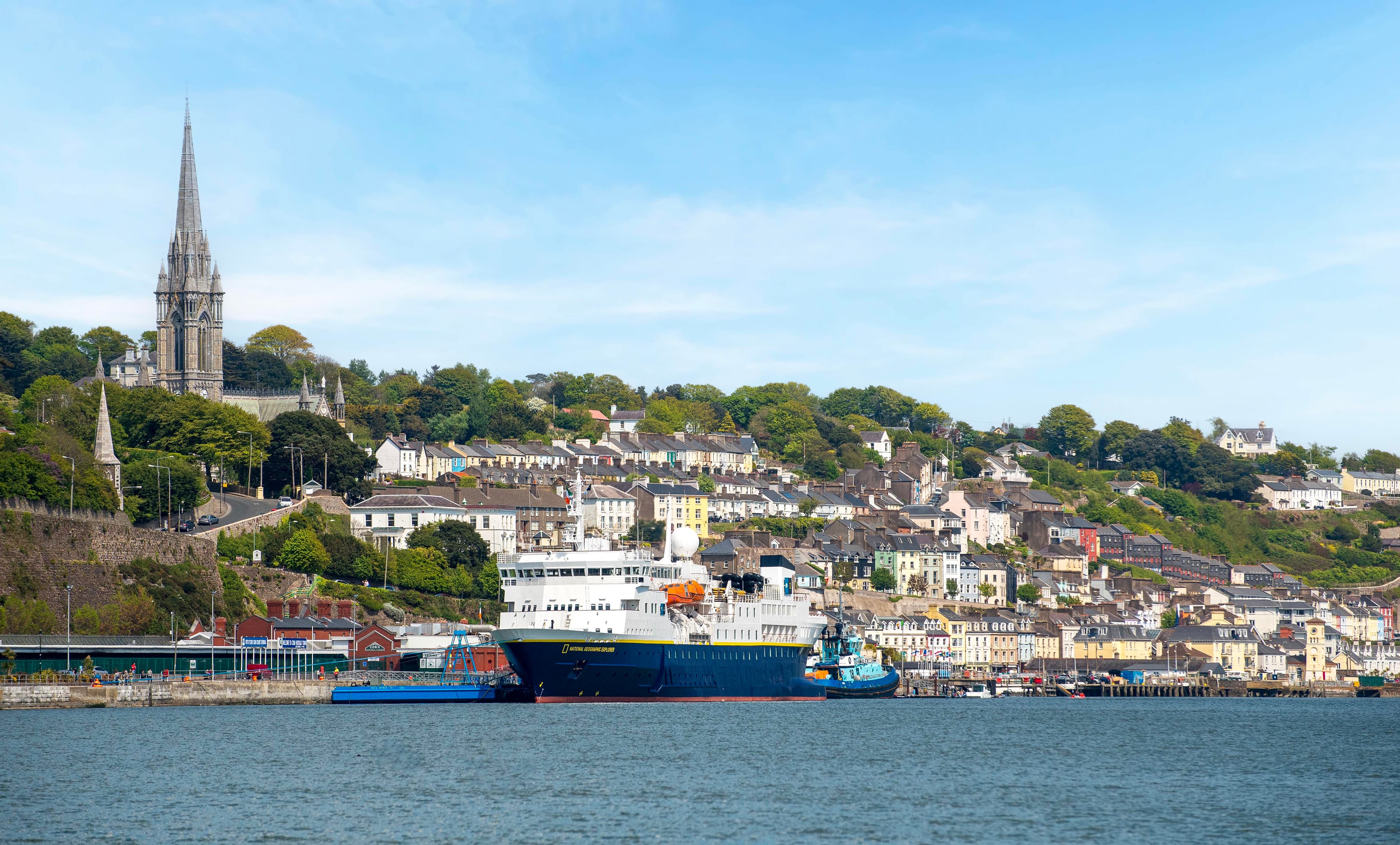
The National Geographic Explorer docked in the picturesque city of Cobh, Ireland. Photo: Jeff Mauritzen
Do you remember when you first became interested in politics?
The most impactful time in my young life was during my fellowship to Harvard Law School after graduating from Trinity in Dublin. It was 1967-68: there was the war in Vietnam, Martin Luther King was assassinated, and Robert Kennedy was assassinated. It was devastating, and what impacted me at Harvard was that my contemporaries—my friends—were fighting for the civil rights movement. The idea that young people could make a difference was completely new to me.
What did you do with this revelation?
I returned to Ireland to practice and teach law. In 1969, there was a Parliament election. Six members of the Parliament’s Upper House are elected by graduates of the two universities: Trinity College, which was more Protestant at the time, and National University of Ireland. I questioned why it was always elderly male professors who got elected, so I went forward as a young Catholic woman. Against the odds—for both gender and religious reasons—I got elected at the age of 25 and remained in the Senate for 20 years.
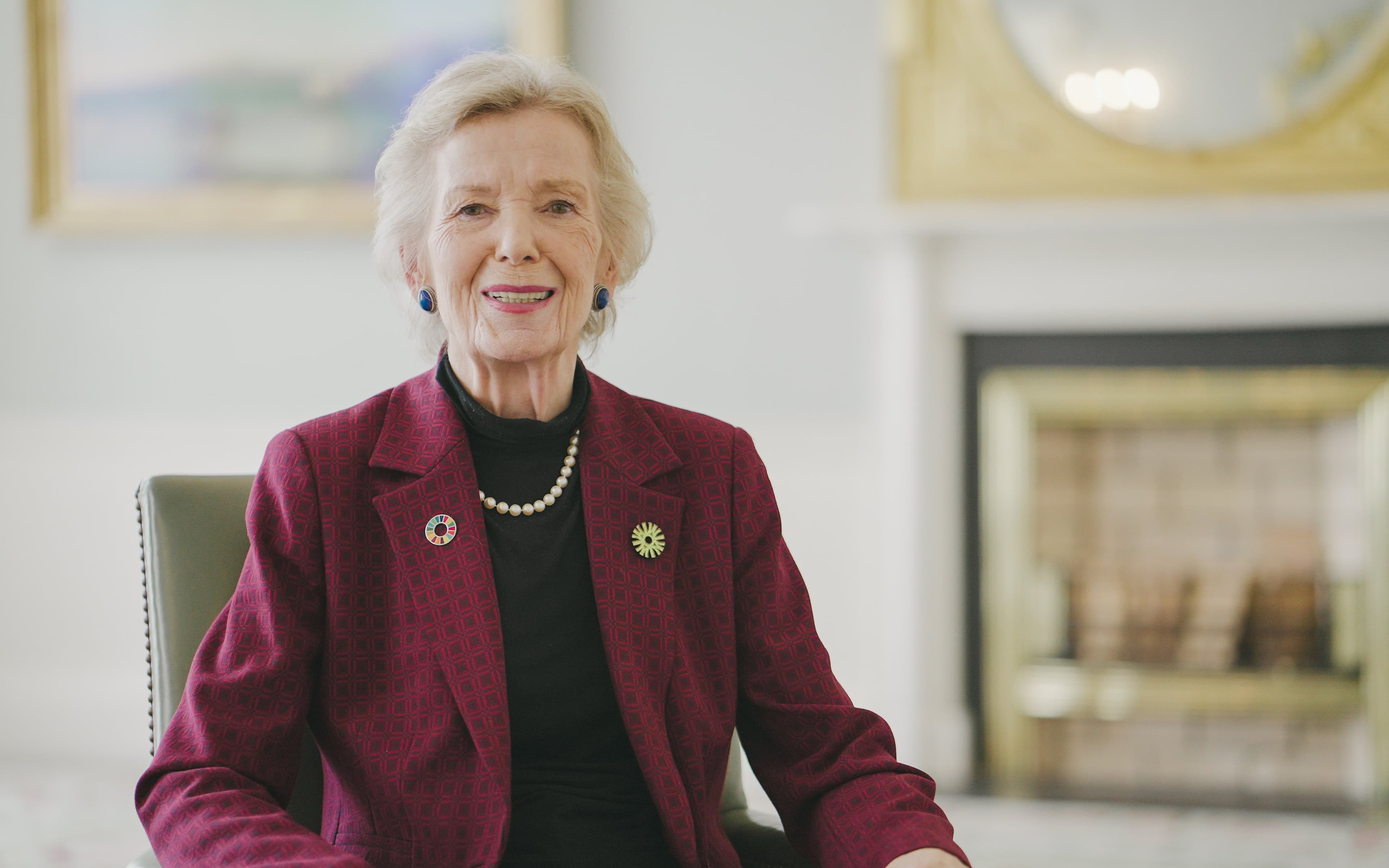
Mary Robinson, former President of Ireland. Photo: Brennan Guerriere.
What led to your presidential election?
In 1990, I agreed to be the Labor Party candidate. I was an early nominee so I traveled around and learned about this beautiful country. I kept seeing the spirit of meitheal at work. This is an Irish word and tradition that means you help one another within the community. I started speaking about this wonderful aspect of our cultural DNA, and people really responded. By the time the other two nominees caught up, they didn’t have the right tone and weren’t as convincing. In the end, I won by a significant number of votes.
Much of your life’s work has been advocating for people outside of Ireland. What international work are you proud of?
In 1992, I went to Somalia on behalf of aid agencies. The warlords were fighting and preventing food from reaching starving people. I met with two warlords, and it made a difference. A couple of years later, I was the first head of state to go to Rwanda. On my third visit there, I was invited to the Pan African Women’s Summit in Kigali. It was less than three years after the genocidal killing and the widows we met were an extraordinary group of women. I remember thinking that initiatives like this could really help a country move forward.
How did being in a high-profile position impact your perspective on tackling issues like climate change?
The opportunity to work at the local, national, and international levels showed me the importance and impact of each. I've worked in various ways in the UN over the years, and I’m aware of how important multilateral collaboration is. The wisdom of indigenous communities, for example—even at the international level—is crucial. I’ve been able, in various ways, to make their voices heard, and I got to understand their wisdom. Of course, I now relate very much to what many are doing to fight climate change.
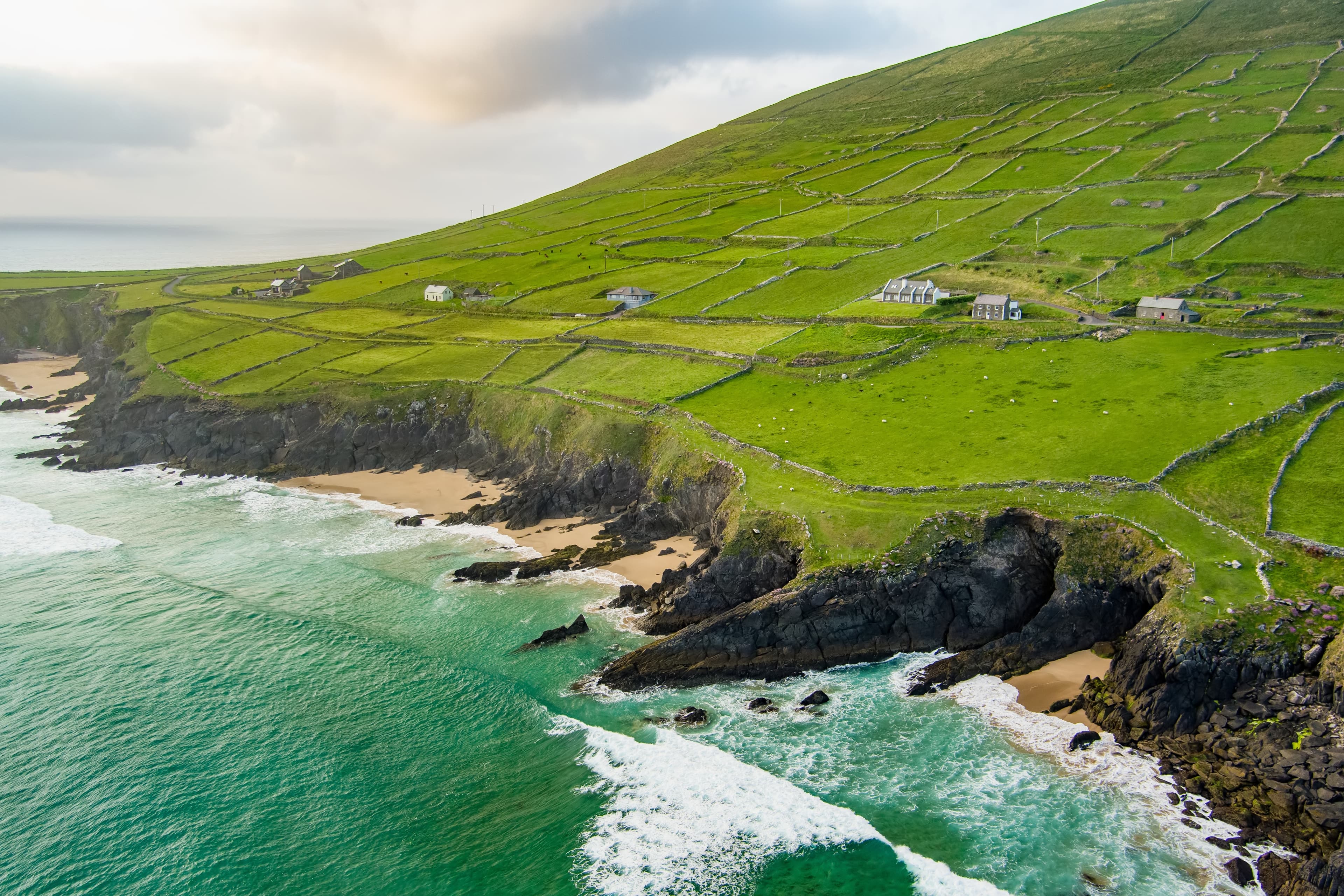
As part of our expedition, we sail past the Blasket Islands—a favorite destination of Robinson because of the area's wildlife.
What about next year’s voyage are you looking forward to?
I went on a Lindblad Expeditions-National Geographic trip in 2011, and I’m excited to do it again. We’ll travel in May, which is my favorite month—it’s the greenest time. The birds are at their best and you see all kinds of marine life, like baby seals and dolphins. There are all sorts of fascinating and beautiful places like the Blasket Islands off the west coast. I was President for seven years and I hadn’t had the chance to see many of the islands I represented until the 2011 voyage. Visiting them was fascinating and gave me a different perspective on my country. There’s a lot of history and a strong sense of place.
What topics do you plan to cover as a guest speaker?
I'd like to talk about leadership in the world. I’d also like to talk about the climate crisis, but in a positive, solutions-focused way. And I’d like to talk about my country. I’m proud of how Ireland has developed as a nation. We fought for our freedom for a long time, and we’ve had a lot of economic difficulties, but we are resilient, and now we are a country that’s taking its place in Europe and internationally.
Featured Itinerary
Related Articles
